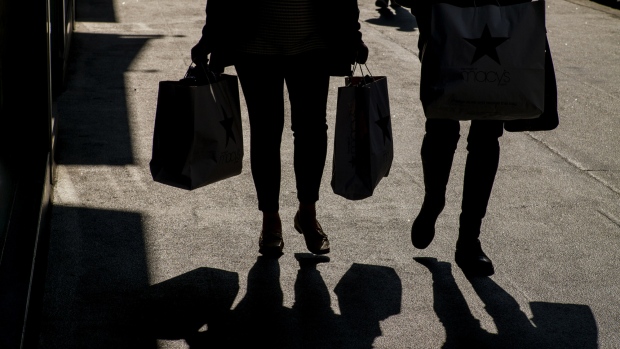Mar 26, 2019
U.S. consumer confidence slumps in March, missing all estimates
, Bloomberg News

U.S. consumer confidence declined for the fourth time in five months on dimmer assessments of present conditions, suggesting that weak first-quarter growth and slower job gains in February are weighing on attitudes and potentially spending.
The Conference Board’s index fell to 124.1 from 131.4, the New York-based group said in a report Tuesday. That missed all economist estimates in a Bloomberg survey calling for a rise to 132.5. The gauge of views on the present situation fell to the lowest level in almost a year, while the expectations index also weakened.
Key Insights
- The drop follows a report showing U.S. employers added just 20,000 jobs in February, the smallest gain in almost a year, and analysts are projecting the weakest economic growth this quarter since 2016. In addition, gasoline prices have jumped in recent weeks, leaving Americans with less power to spend on other goods and services.
- At the same time, consumer attitudes are likely to be supported by the best wage gains in a decade, a rebound in the stock market this year and the Federal Reserve’s pledge to be patient on raising interest rates.
- The survey results contrast with the University of Michigan’s preliminary March sentiment, which advanced more than expected to the highest measure this year led by increases in outlooks for incomes and the economy.
Official’s View
“Confidence has been somewhat volatile over the past few months, as consumers have had to weather volatility in the financial markets, a partial government shutdown and a very weak February jobs report,” Lynn Franco, senior director of economic indicators at the Conference Board, said in a statement. “The overall trend in confidence has been softening since last summer, pointing to a moderation in economic growth.”
Get More
- Respondents saying jobs are plentiful decreased to 42 per cent from 45.7 per cent , while those who saw jobs as hard to get rose to 13.7 per cent from 11.7 per cent.
- The labor differential -- which measures the gap between respondents saying jobs are plentiful and those who say they’re hard to get -- fell to the lowest since July.
- Buying plans for cars and homes both increased.

